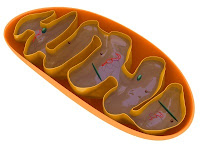How to become diabetic in 6 hours!? Thanks Dr. Delgado for bringing science to the masses!
(Note: My apologies for the sarcastic tone of this post. I am not really congratulating anybody here!) Dr. Nick Delgado shows us in this YouTube video how to "become diabetic" in 6 hours! I must admit that I liked the real-time microscope imaging, and wish he had shown us more of that. But really! After consulting with my mentor, the MIMIW , I was reminded that there is at least one post on this blog that shows how one can "become diabetic" in just over 60 minutes – that is, about 6 times faster than using the technique described by Dr. Delgado. The technique used in the post mentioned above is called "intense exercise", which is even believed to be health-promoting! (Unlike drinking olive oil as if it was water, or eating white bread.) The advantage of this technique is that one can "become diabetic" by doing something healthy! Thanks Dr. Delgado, your video ranks high up there, together with this Ali G. video , as a fine example of how to bri...








